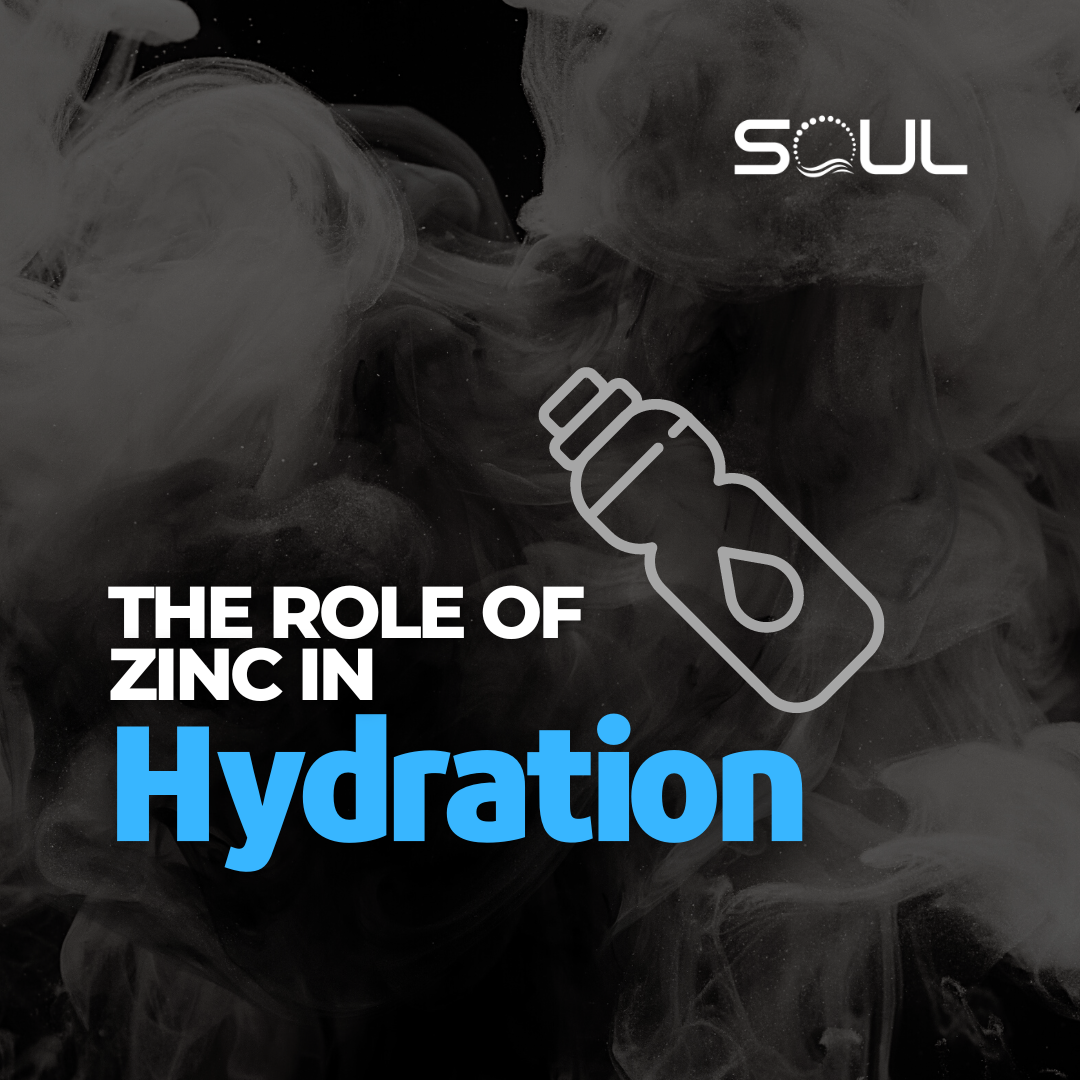
Zinc: Your Secret Weapon for Ultimate Hydration
In the world of health, zinc often goes unnoticed, overshadowed by the star-studded names of calcium, vitamin C, and magnesium. Yet this trace mineral is a powerhouse, driving hundreds of crucial reactions in the body. Zinc is like that quiet backstage crew member who keeps the show running smoothly. While present in the body in only trace amounts, zinc plays a vital role in our immune system, senses of taste and smell, and even in the very blueprint of our bodies—DNA. And in a lesser-known role, zinc is essential for something we often take for granted: hydration.
The Mechanism of Hydration: Zinc's Role in Water Balance
To understand zinc’s impact on hydration, let's dig into the body’s intricate system of water management. Zinc influences cellular water retention by helping balance electrolytes, such as sodium and potassium. These electrolytes are like gatekeepers, regulating the flow of water in and out of our cells. Imagine your cells as tiny water balloons; zinc helps keep them plump and hydrated, maintaining the electrolyte balance that allows cells to absorb and retain water effectively.
But zinc doesn’t just keep water within the cells. It also collaborates in producing a hormone with a critical role in hydration: vasopressin, or antidiuretic hormone (ADH). Vasopressin acts like a traffic controller for water, signaling the kidneys to reabsorb water from urine and recirculate it through the bloodstream. Without enough zinc, vasopressin production could falter, leading to more water loss through urine and, potentially, dehydration.
Skin, Collagen, and the Hydration Connection
Zinc also steps onto the stage in another critical role: supporting skin hydration through collagen production. Collagen, a structural protein, provides the scaffold that keeps our tissues resilient and supple, and it has an incredible ability to retain water. Zinc’s influence here ensures that collagen production runs smoothly, so skin and tissues retain hydration more effectively. So, the next time you marvel at your skin’s elasticity or feel a youthful “bounce” in your skin, thank zinc for lending a hand.
Avoiding the Zinc Trap: Balance Is Key
While getting enough zinc is essential, there’s a fine line between enough and too much. Excessive zinc intake can hinder the absorption of other minerals like copper, and an overdose can lead to unpleasant side effects. Think of zinc as a guest who should never overstay their welcome.
Getting Zinc Right: Foods
Zinc is present in a variety of foods, so adding it to your diet is achievable without drastic changes. Oysters top the list, followed by beef, pork, chicken, beans, nuts, and whole grains.
The Takeaway: Zinc’s Impact on Health and Hydration
While it might seem like a minor player in the vast orchestra of nutrients, zinc has an undeniable influence on both hydration and health. From managing electrolyte balance to supporting hormone production, zinc makes sure that every cell in our body is hydrated, vibrant, and performing at its best. So next time you reach for a glass of water, remember that zinc is working behind the scenes, making sure every drop is put to good use.
These statements have not been evaluated by the Food and Drug Administration. This product is not intended to diagnose, treat, cure or prevent any disease. This article is for informational purposes only and is not a substitute for professional medical advice. Always consult your healthcare provider regarding any health concerns or before starting new supplements.
